Whilst attending the 9th RapidLion South African International Film Festival ostensibly to watch films, I was also keen to see what the infamous city of Johannesburg has to offer. Of course the many cafe bars and restaurants of the uber trendy Melville and Parkhurst suburbs hold attraction but I also wanted to get a taste of the history, politics and flavour of one of South Africa's most iconic cities.
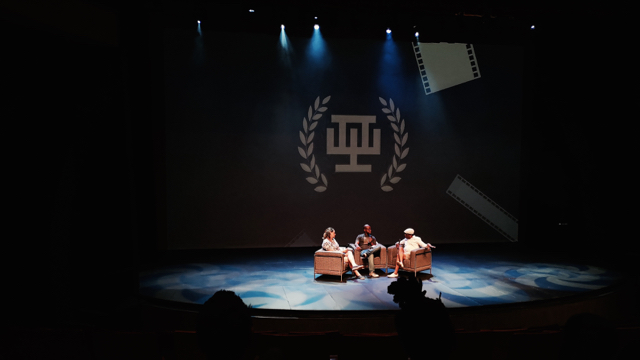
RapidLion Film Festival, founded by its erudite, flamboyant artistic director, Eric Miyeni was, in this year returning after the forced pandemic hiatus of the last two years. Produced on a shoestring budget and housed in the magnificent auditorium of the Keorapetse William Kgositsile Theatre of UJ Arts Centre which is ensconced within the splendid, curated grounds of the University of Johannesburg, the festival, in its ninth year screened over 119 films apparently whittled down from almost 477 submissions and certainly lays claim to being the only dedicated BRICS festival in the world featuring an eclectic programme of shorts, documentaries and feature films from Brazil, Russia, Iran, China and South Africa amongst others.
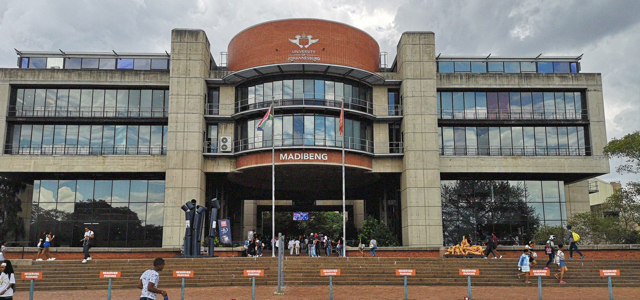
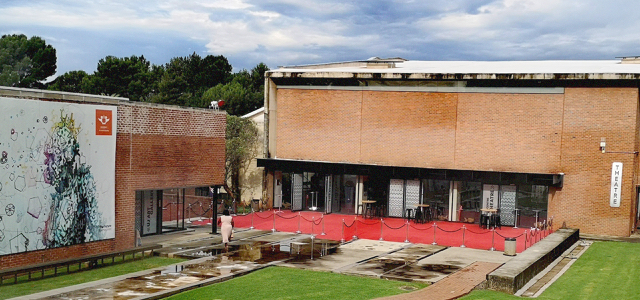
(University of Johnanesburg; UJ Arts Centre)
It was truly fascinating to see a contemporary film festival with an absolute commitment to truthful storytelling with most stories steeped in a striving working-class ethos. It was goodbye to the glossy mansions, condominiums and boardrooms of middle-class western high fliers and a warm welcome to the terraced houses, small village cottages and apartments of ordinary working men and women who, in the course of living, somehow find themselves engrossed in extraordinary dramatic situations.
For example, the refreshing and brilliant Iranian short, Hide and Seek, a talented debut by Sara Alaeddiny, which features a young girl waiting for her father to come home to prepare for the visit of an uncle the next day, yet at the same time, the girl holds onto a terrific secret about both men. This film screened in good company, a carefully curated programme of eight films from all over the world including Ireland, USA, Pakistan, Russia and Iran that possessed murder mystery at their core.
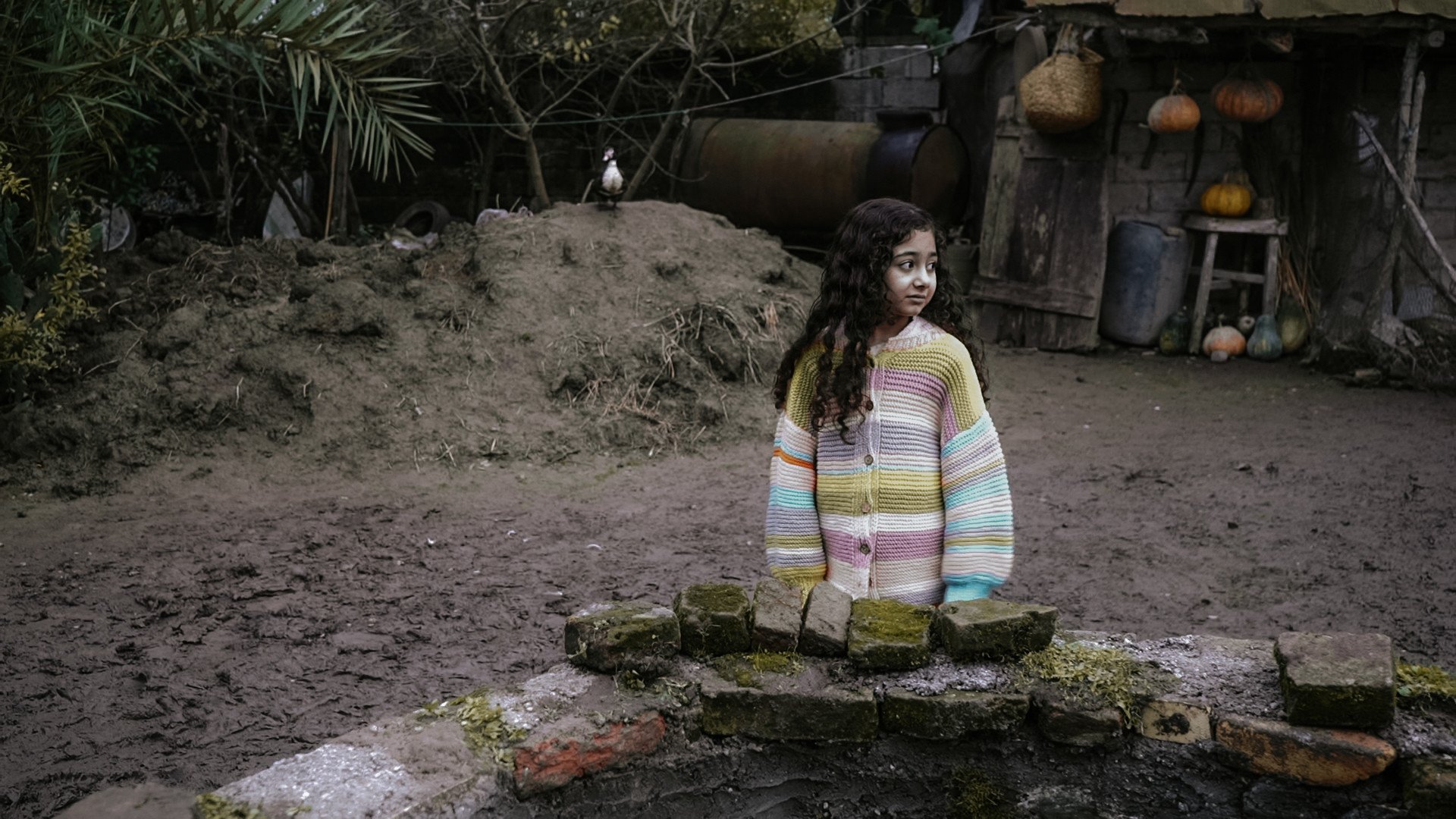
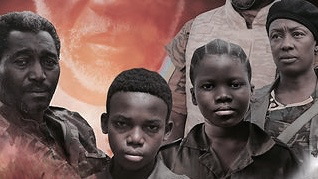 (stills: Hide and Seek, Sara Alaedinny; Song Of The Rifle, Jean Elliot Liboudo)
(stills: Hide and Seek, Sara Alaedinny; Song Of The Rifle, Jean Elliot Liboudo)
Jean Elliot Liboudo’s expansive African war film about child soldiers, Song Of The Rifles, was an intriguing, ambitious effort for an independently made first feature by this young director from Burkino Faso. It was clear from his delightfully candid Zoom Q&A that a concerted effort to develop and nurture a film culture in Burkina Faso is paying dividends as Liboudo revealed the logistics of how he’d managed to enlist helicopters and tanks into his recently completed low budget movie which consequently rendered him too tired to travel to the festival. There followed a fascinating debate between the director and Miyeni on the merits of establishing a new African cinema distribution model largely targeting BRICS countries.
Even School Of The Future, an overlong Russian documentary directed by Tatiana Sergeevna Tretiakova and Mikhail Aleksandrovich Churbanov which explores a new and interesting pedagogic method of teaching young people had its way of drawing you into its flag-waving commentary, a trait often seen in films from power countries such as the United States and France.
Festival director, Miyeni organises a trip for me, a tour of the Soweto township, taking in the former homes of Nelson Mandela and Desmond Tutu, now, of course, tourist attractions and a trek through the infamous back streets of Soweto. He slips into a reverie of his youth, tracking his journey to school as a seven year old, as well as recounting the Soweto riots of 1976, including witnessing the harrowing sight of the barely reported killing of the only non black victim of the riots.
Today's Soweto is a bustling, energetic, half developed series of dwellings ranging from shops, bars, restaurants and new townhouses replete with car parking and garden space, surrounded by twinkling barbed wire and electric fencing siding up to the smaller two to three room houses upgraded from the 1970’s ramshackle lean-to’s that percolate in the memory. Things have changed.
The residents are mostly young- South Africa boasts a youthful population- who carry an air of confidence in a swagger that belies its reality. I was warned to beware of being lulled into the friendly facade- there exists an underbelly of violence always ready to show its ugly head. On the day I arrived, a street thief caught stealing a cellphone on 7th Avenue in Melville, was stripped naked by residents and marched up and down the street. As one street art seller exclaimed, “It’s better for him… and for us”. He goes on to explain that if the police take him, he’d be back within a month.
“Now he has shame, he can’t come back here”.
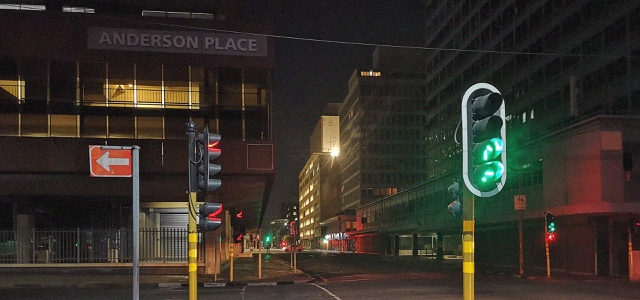
However, I see a different picture of this country, friendly, entrepreneurial, despite a legacy of socio-economic woes and the constant clarion-call of "corruption corruption" which baffles me when I look deeper. What South Africans are labelling as corruption in their country is barely a smidgen in comparison to what goes on in Europe, in my country, Britain, for example, the Pandemic exposed the whole rotten system of graft in high places. Currently Eskom, the country's public electricity utility company is in the throes of experiencing regular energy blackouts from an overworked electricity grid. I happened to watch South Africa's recently appointed Minister of Electricity, Kgosientsho Ramokgopa, in a live television interview explaining how he intends to sort out this major issue. I was blown over by his knowledge of his subject and his ability to describe in fine detail how the problems arose and how he was going to fix them. It was candid and informative and I couldn't help but chuckle, as I compared this interview to that given by senior Ministers back home in my country- such direct scrutiny would be clouded in soundbite and belligerent obfuscation.
At a busy 4-way intersection in central Soweto, I am directed to a small fish and chip shop, the first shop opened by Richard Maponya, a local man who grew from selling milk on his bicycle during apartheid to eventually opening his first supermarket in Soweto. Today, a shopping mall bears his name and Maponya is well established as a multi millionaire property magnate. This in effect, epitomises the spirit of South Africa. I was cornered by a bright accountancy student who had previously studied in Canada and Bulgaria where he found the teaching standard to be disappointing so returned home disillusioned. He asked me if I was his age (early 20's), in his position, what would I do? It was a great question, a question for today in a shrinking globalised world. Fortunately I did not have to answer due to the start of the next film. But I knew and I believe he did too, that his decision had already been made by the fact he was discussing economics with a foreigner in the grounds of a top university having disembarked the train driving talent from potentially Africa's leading economy.
As a member of the BRICS group of nations and with its inherited link to Europe- an assured benefit from its terse socio-political history- surely this country, on this continent is already, possibly unbeknownst as yet, a global player politically and economically. In many ways one could easily say the RapidLion South African International Film Festival is a microcosmic snapshot of the future, a vision of what South Africa can and should be in a macrocosmic globalised world. Roll on the 10th RapidLion Festival in 2024.
The RapidLion South African International Film Festival took place in Johannesburg, 4 - 11 March, 2023


